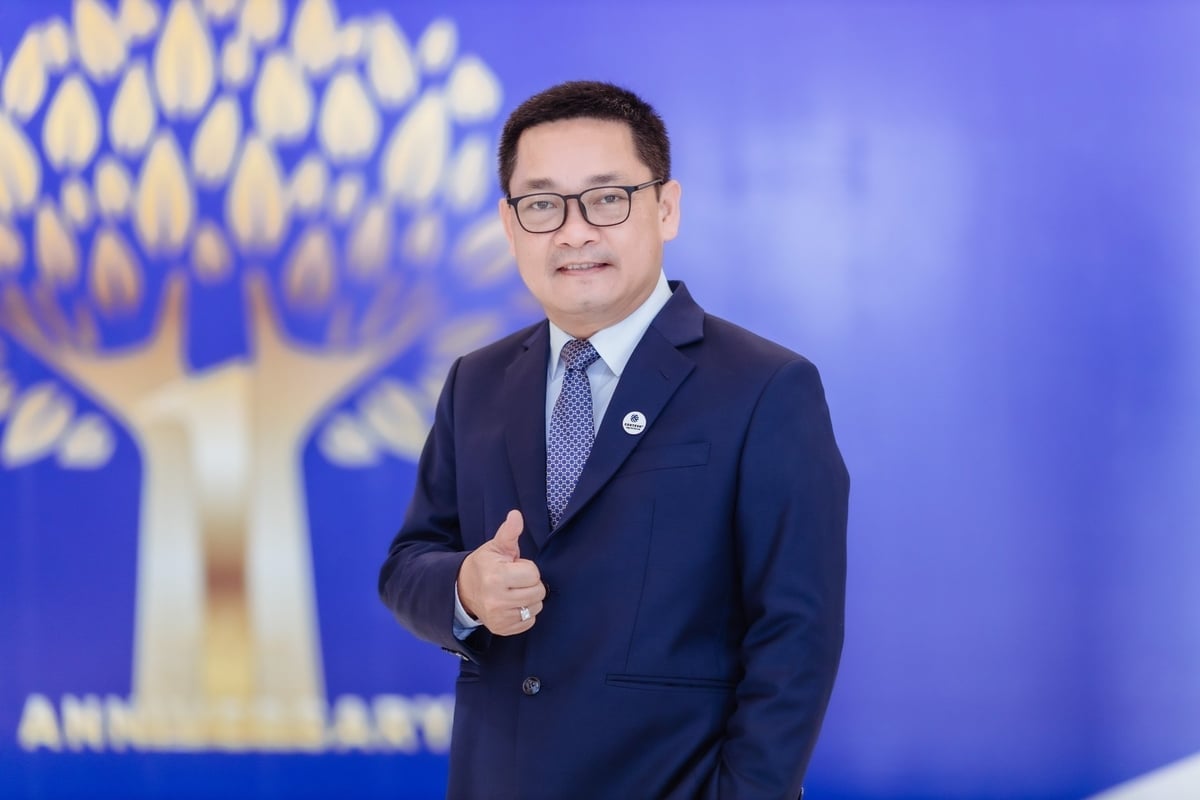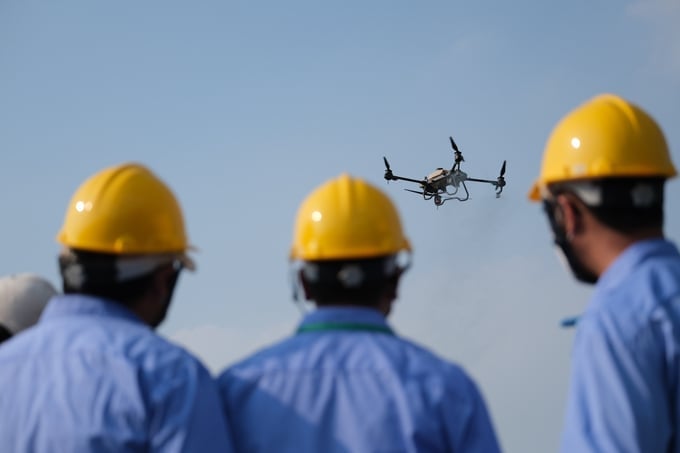May 30, 2025 | 17:02 GMT +7
May 30, 2025 | 17:02 GMT +7
Hotline: 0913.378.918
May 30, 2025 | 17:02 GMT +7
Hotline: 0913.378.918

Chairman of CropLife Vietnam Dang Van Bao: "The Vietnam Agriculture and Nature Newspaper is a bridge of knowledge for sustainable development". Photo: CLV.
Agriculture and the environment are increasingly major concerns for society, making the role of the media essential in bridging the gap between scientific knowledge and practical application. The media is not only a bridge that helps farmers access information and apply technological advancements, but also plays a vital role in raising public awareness about sustainable production.
I believe that journalism, with its current multidimensional communication approach, is playing an increasingly important role in enhancing awareness and contributing significantly to creating added value for the agricultural economy. Media outlets serve as reliable sources of information, not only conveying policies but also interpreting and clarifying scientific applications in ways that are more accessible to farmers.
At the same time, digital media and social networks should be prioritized as key platforms to disseminate information to a broader audience, especially the younger generation of farmers and businesses in the sector.
Success stories from farmers and cooperatives should also be widely shared to inspire and drive a shift in public perception towards sustainable production practices.
In addition to disseminating information, we hope that the press and media agencies will strengthen collaboration with scientific organizations, businesses, and associations to enhance the role of policy advocacy, contributing to the creation of a more favorable legal environment for scientific solutions to be applied in practice.
The merger of the Vietnam Agriculture Newspaper and the Natural Resources & Environment Newspaper represents a shift in how information about agriculture and the environment is approached, while also opening up opportunities to improve communication effectiveness in this field.
Through this, CropLife Vietnam hopes to continue its close cooperation with the Vietnam Agriculture and Nature Newspaper to promptly convey scientific solutions and sustainable agricultural practices. The collaboration between the parties is expected to bring science closer to farmers, while also laying the foundation for promoting modern and sustainable agricultural production, balancing the interests of both production and consumption.

CropLife Vietnam organizes a training course on operating plant protection drone spraying equipment. Photo: Quynh Chi.
Climate change, food security, and growing demands for food safety are placing unprecedented pressure on the agricultural sector. In this context, science and technology are not only the “key” to solving these challenges but also serve as a driving force behind efforts to increase productivity, enhance the quality of agricultural products, and pursue long-term sustainable development.
However, to ensure that science truly delivers practical results, it is crucial to strengthen collaboration and coordination among policymakers, scientists, businesses, and especially farmers, placing the interests of farmers at the very heart of all initiatives.
One of the most important factors is ensuring that farmers have timely and comprehensive access to accurate, relevant, and practical information. This includes understanding what scientific solutions are available, the specific roles they play, and most importantly, how to effectively apply them within Vietnam’s unique agricultural conditions.
Furthermore, to make sound decisions, farmers need not only to be aware of these technologies, but also to be fully informed of their economic benefits, environmental impacts, and how to implement them safely and sustainably.
In recent years, the strategic shift from a purely agricultural mindset to an agricultural economy has begun to show positive results. Central to this transition is the prioritization of equipping farmers with the knowledge and skills necessary to adopt and apply new technologies.
This shift presents a significant opportunity. We now have favorable conditions to introduce a variety of solutions and technologies to farmers. However, this also comes with its own set of challenges. The adoption and effective use of technology is rarely immediate. It requires a process of adaptation, often beginning with pilot models and real-world demonstrations before being scaled up more broadly.
For farmers, having adequate knowledge and practical skills is not just about being able to apply new tools. It also empowers them to manage potential risks that may arise during implementation - whether related to costs, environmental impacts, or technical failures. When farmers are well-informed and well-prepared, they are better able to sustain the value of these innovations over the long term.

The media plays a crucial role in ensuring that farmers have full access to information about scientific solutions. Photo: Hung Khang.
In addition to technological advancement, human resource development is also a key factor. Currently, the professional qualifications of workers in the agricultural sector have improved significantly. However, to fully meet the demands of modern, high-tech agricultural production, it is essential to prioritize the implementation of specialized training programs. These programs should focus particularly on the operation and maintenance of advanced technological equipment, with the goal of enhancing workforce quality and contributing to long-term, sustainable development in the sector.
Moreover, financial support mechanisms play an important role in promoting agricultural innovation. Although many cooperative models have improved access to technical technologies, expanding preferential credit programs and value chain linkages will empower farmers to be more proactive in accessing capital and applying science in production.
At the same time, for technology application to be truly effective, implementation needs to be more synchronized and systematic. Currently, initiatives supporting regional linkage and public-private partnerships are helping to bridge development gaps between localities, optimize production efficiency, and promote sustainable agricultural growth.
Policy systems are also a decisive factor in enabling the practical application of science. The alignment of science and policy ensures that advanced initiatives are not only safe but also able to maximize their potential when implemented. In the context of rapidly evolving science and technology, updating the legal framework must strike a balance between rigor and flexibility, thereby creating favorable conditions for effective solutions to be applied in a timely manner.
When all of these components are implemented in a coordinated and comprehensive manner, ranging from raising public awareness and enhancing the capacity of human resources, to expanding access to financial support and refining policy frameworks, Vietnamese agriculture will have the opportunity to grow more rapidly, more sustainably, and move closer to the goal of full modernization.
Translated by Phuong Linh

(VAN) Vaccinating juvenile pangasius helps reduce disease, antibiotic use, and farming costs, increasing profits for export-oriented farmers in An Giang.

(VAN) Due to a limited supply of workforce and competitive recruitment requirements, businesses struggle to retain talented veterinary human resources.

(VAN) WOAH’s guidance aims to mitigate disease risks through a One Health approach that balances economic, conservation, and public health interests.

(VAN) Ms. Nguyen Thi Dung, Deputy Director of Ngoc Hoang Cooperative, shared about the journey of bringing dragon fruit to Europe, achieving annual revenues in the billions of VND.

(VAN) Bamboo products from Thang Tho Bamboo Cooperative have reached many countries around the world, while also creating jobs for local workers.

(VAN) The Management Board of Con Dao National Park reported that a green sea turtle, tagged in the Philippines, has traveled thousands of kilometers to lay 84 eggs on Bay Canh Islet.

(VAN) Green technology is paving a new path for sustainable aquaculture in the Mekong Delta in particular and across the country in general, helping reduce emissions and adapt to climate change.